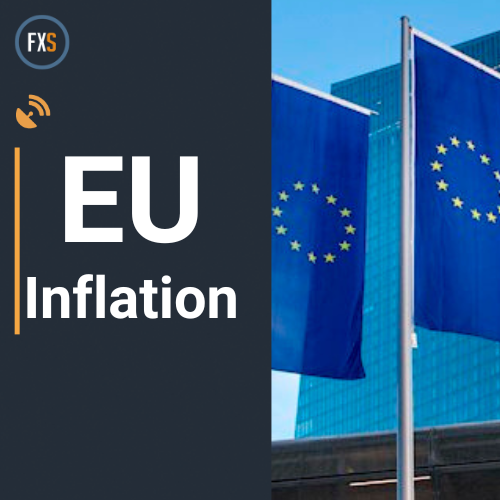Trade War Weighs On Eurozone: Simkus Hints At Further ECB Rate Cuts

Table of Contents
The Trade War's Impact on Eurozone Growth
Trade wars significantly hinder economic growth through various channels. Reduced exports, supply chain disruptions, and increased investor uncertainty all contribute to a weaker economic outlook. The impact on the Eurozone is particularly concerning, given its reliance on global trade.
- Decreased consumer and business confidence: Uncertainty surrounding future trade policies leads to reduced spending and investment.
- Weakening investment due to uncertainty: Businesses postpone expansion plans and investment decisions in the face of unpredictable market conditions.
- Reduced exports to key trading partners: Tariffs and retaliatory measures limit the ability of Eurozone businesses to export goods and services.
- Supply chain disruptions leading to increased costs: Trade restrictions disrupt established supply chains, leading to production delays and increased input costs.
Specific examples include the impact of US tariffs on European automobiles and the retaliatory measures imposed by the EU. These trade tensions have already dampened Eurozone economic growth, impacting sectors heavily reliant on exports. The uncertainty surrounding global trade policy further exacerbates these negative effects, creating a climate of hesitancy and hindering long-term investment. Understanding the interplay between global trade uncertainty and Eurozone economic growth is crucial for navigating the current economic landscape.
Deflationary Pressures and the ECB's Response
The trade war also contributes to deflationary pressures within the Eurozone. Reduced demand, both domestically and internationally, leads to lower prices.
- Lower import prices due to weakening global demand: Decreased global demand puts downward pressure on import prices, potentially leading to deflation.
- Reduced domestic demand due to economic slowdown: Slower economic growth reduces consumer spending, resulting in lower prices for goods and services.
- Increased competition leading to price wars: Businesses facing reduced demand may engage in price wars to maintain market share, further contributing to deflation.
The European Central Bank (ECB) has a mandate to maintain price stability within the Eurozone. To combat deflationary risks, the ECB employs various tools, including interest rate cuts and quantitative easing (QE). Interest rate cuts aim to stimulate borrowing and investment, while QE involves injecting liquidity into the market by purchasing assets. The effectiveness of these tools in the current context of trade war-induced deflation remains a subject of ongoing debate, however, the deflationary risks are significant.
Simkus's Comments and Market Reactions
ECB board member Gediminas Šimkus's recent comments hinted strongly at the possibility of further interest rate cuts. While he didn't explicitly endorse a specific timeline, his statements clearly indicated that the ECB is seriously considering this option to counter the economic slowdown.
- Analysis of Šimkus's reasoning behind suggesting further cuts: Šimkus likely cited the weakening economic indicators, persistent deflationary pressures, and the ongoing uncertainty surrounding the trade war as justifications for further monetary easing.
- Market reaction to his comments (e.g., bond yields, currency movements): His comments caused a noticeable dip in bond yields, reflecting investor expectations of lower interest rates. The Euro also experienced some volatility following his statements.
- Potential dissenting opinions within the ECB regarding further rate cuts: Not all members of the ECB's governing council necessarily agree on the need for further rate cuts. Some might argue that the current measures are sufficient or that further cuts could carry unwanted side effects.
Alternative Policy Options Considered by the ECB
Beyond interest rate cuts, the ECB has other policy options at its disposal to address the economic challenges.
- Targeted lending programs: These programs offer preferential lending rates to specific sectors of the economy, aiming to boost investment and lending.
- Further QE: Expanding the scale of QE could inject even more liquidity into the market, potentially stimulating lending and investment.
Each alternative carries advantages and disadvantages. Targeted lending programs may be more effective at supporting specific industries, but they are also more complex to implement. Further QE may boost liquidity but could also lead to concerns about asset bubbles and inflation in the longer term. Political considerations also play a significant role in the ECB's policy choices, balancing the need for economic stimulus with concerns about the potential consequences of unconventional monetary policy.
Conclusion
The trade war's impact on Eurozone growth, the resulting deflationary pressures, and the ECB's potential response through further interest rate cuts as hinted by Šimkus are all deeply intertwined. Šimkus's statements, and the market's reaction to them, underscore the serious concerns surrounding the Eurozone's economic outlook. The uncertain global economic climate and the ongoing trade war are placing significant pressure on the Eurozone economy, leading to considerations of further reductions in Eurozone interest rates. The ECB's next moves will be crucial in determining the course of the Eurozone's economic trajectory. Stay informed about developments in Eurozone interest rates and the ECB's policy decisions. Continue reading our analysis for updates on this evolving situation. Follow us for the latest insights on Eurozone interest rates and economic trends.

Featured Posts
-
 Trumps Trade Concessions A Warning For Canadian Voters From Carney
Apr 27, 2025
Trumps Trade Concessions A Warning For Canadian Voters From Carney
Apr 27, 2025 -
 Svitolinas Strong Start Easy Win Over Kalinskaya In Dubai
Apr 27, 2025
Svitolinas Strong Start Easy Win Over Kalinskaya In Dubai
Apr 27, 2025 -
 How Professional Help Shaped Ariana Grandes Latest Look
Apr 27, 2025
How Professional Help Shaped Ariana Grandes Latest Look
Apr 27, 2025 -
 Cma Cgm Boosts Global Network Through 440 Million Turkish Acquisition
Apr 27, 2025
Cma Cgm Boosts Global Network Through 440 Million Turkish Acquisition
Apr 27, 2025 -
 Robert Pattinsons Sleepwalking Incident The Horror Movie Connection
Apr 27, 2025
Robert Pattinsons Sleepwalking Incident The Horror Movie Connection
Apr 27, 2025
